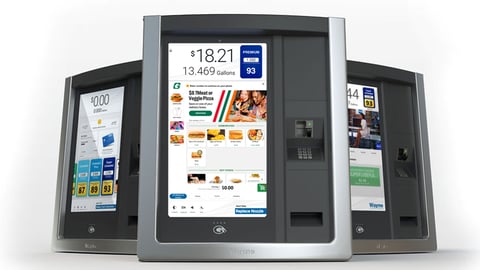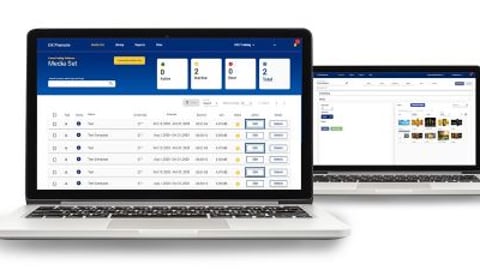Dover Fueling Solutions User Conference puts focus on customer relationships, AI
Change was the theme of this year’s Dover Fueling Solutions (DFS) User Conference held in Austin, TX where attendees from across North America were told to embrace change to stay competitive and attractive to today’s fueling and c-store customers.
“Our industry's changing and you're probably like, well, I mean what doesn't change, right,” said Kendra Keller, VP and GM of North America, for DFS, in her opening remarks. “It’s inevitable. But I think what's so different about what we're seeing in the market is that for so many years, if you look back through our business, through our industry, change was slow. It wasn’t necessarily something that was going at the same pace as every other industry in the world. What we've seen over the last couple of years is that things like technology, our macroeconomic conditions, clean energy strategies, and really just this new generation that's growing up that expects things differently, all these things are impacting our industry and how change is happening.”
What can be said about change now, Keller said, is that it is happening faster and today’s fuel suppliers, technology providers, and c-store operators must embrace how quickly things have changed to stay competitive. DFS itself decided a few years back that it needed to stay ahead of that change, to bring innovative products and work with partners to helps is growing number of partners to also embrace change and stay competitive.
“That's where we realized we can bring technology into our business,” she continued. “We can find ways for it to help our customers with technologies and bring value to our customers. We're able to show them how they can use technology to drive higher margin business, to drive better customer experience. This new generation [of customers] expects everything instantly. They don't want to wait for anything. I have an 18-year-old, I can tell you if he can't buy something on his phone, if he can't walk straight into the store and pick it up without having to wait in a line, he wants nothing to do with it.”
One way of embracing that change was the growing use of artificial intelligence technologies (AI) across businesses, especially in how to use such technologies to improve a customer’s experience in c-store operations.
Poornima Bethmangalkar, industry group head, industrial and manufacturing, with Happiest Minds Technologies, a company that provides generative AI and other technologies to help drive business transformation, said companies today are all trying to figure out not just how to get customers into their stores, but to get them into the right store and to the right product.
“That's the problem a lot of us are trying to solve,” she said. “We have worked with one of our retail customers to help them use ‘smart shelf’ technologies, where you are able to monitor through cameras and other systems to see when stocks are depleting and to be able to restock items in a timely manner to make sure the right stock is there at all times; and working to be even able to predict when product replenishment have to happen.”
Nate Wotten, a partner at the digital innovation firm Willow Tree, spoke about how AI and other such transformative technologies are being used to discover ways of bringing in customers to store operations, specifically how to help customer discover the right store and product for them in real time that Bethmangalkar had spoken about earlier.
“We're looking at how to make the discovery flow faster,” Wotten said. “A lot of your customers in the C-store space realize they want a treat or something driving down the Interstate at 70 miles an hour. That's where the discovery flow starts for them. Now, it's really dangerous to start thinking about ordering ahead or what type of convenience store do I want to stop at – something with food or energy drinks or tobacco or whatnot. But bringing AI that knows me, knows my preferences, can help accelerate the whole discovery flow for consumers is where we're focusing.”
Wotten added that with highly predictive AI, it can push to that customer driving down the road onto their mobile app and then onto their vehicle’s systems suggestion of where to go to find their favorite items. Those tobacco products, energy drinks or snacks they have orders through the app before, finding and directing them to the nearest store near the Interstate they are one. Such AI systems used by such c-store operations could then place the order ahead of their arrival, so it is ready for them.
“Consumers on average will spend up to 12% more if they order ahead in your mobile app than if they just organically browse your store. And so really bringing AI into that space to further the personalization is the idea.”
Another area of where technology will play a greater role in the future is improve a customer’s experience both in the c-store and at the forecourt.
READ: Dover Fueling Solutions acquires POS provider Bulloch Technologies
Scott Langdoc, who leads Amazon Web Services’ (AWS) worldwide strategy with a focus on grocery, chain drug and convenience/fuel retailing, said all technology deployment comes down to removing pain-points in a customer’s retail experience. At its simplest, it is about making the retail experience, in the c-store and the forecourt, as ‘frictionless’ as possible.
“I was thinking I might be asked that question and I looked it up in the dictionary and I can't argue with what the dictionary says, right,” he joked. “I think when we look at the term frictionless, we're always constantly thinking about the shopper journey, the brand experience, the opportunity at all stages of the experience even before and after the actual transaction or the actual in-store digital event of taking as much of challenging steps that have been a constraint for customers, taking that out of the loop. The more that you can remove those elements of friction from that customer shopper journey, the better that the retail experience is.”
Jarrett Nasca, chief marketing officer at Grubbrr, said what all companies want to do, and why they are turning to various technologies to help them, is to remove what he called ‘Ugh’ moments. Those are moments that cause frustration, slow the buying process down, or add some unwanted barrier to the retail experience. Each ‘Ugh’ moment diminishes the retail experience and customer satisfaction with the retail operator or gas provider.
Langdoc added that companies need to remember that when providing a frictionless customer experience, it is all about building and enhancing your operation’s brand.




